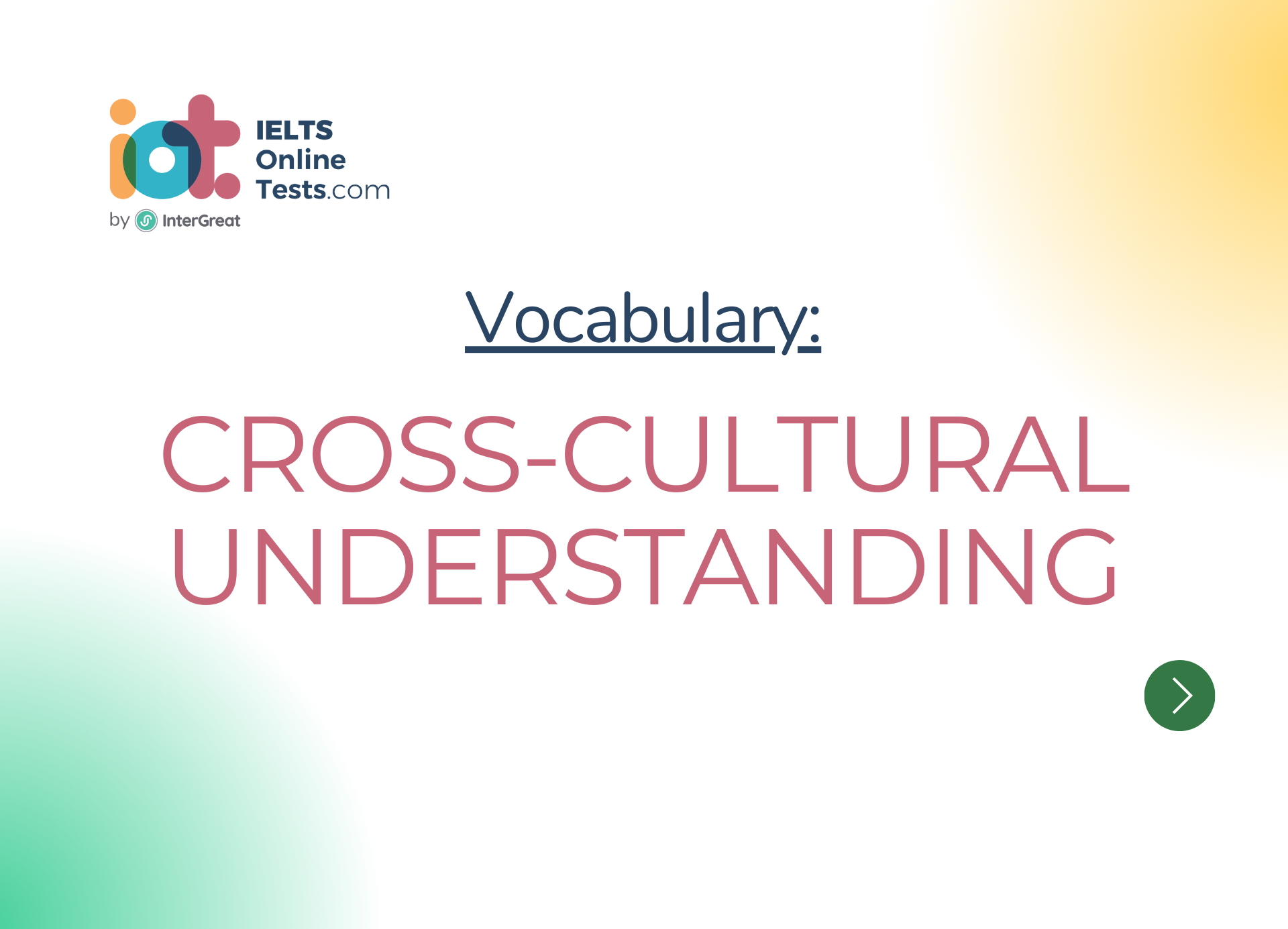
Cross-cultural understanding
Below is a detailed list of vocabulary related to cross-cultural understanding, along with their definitions. These words and phrases will help you discuss various aspects of fostering cultural awareness and sensitivity, showcasing your proficiency in cross-cultural communication during the IELTS exam or any conversations about this topic:
Cross-Cultural Understanding:
- Definition: The ability to comprehend and appreciate the values, beliefs, customs, and behaviors of people from different cultural backgrounds.
Cultural Awareness:
- Definition: Knowledge and recognition of the cultural differences that exist between various groups, leading to a deeper understanding and respect for diversity.
Intercultural Communication:
- Definition: The exchange of information and ideas between individuals from different cultural backgrounds, requiring sensitivity and adaptability.
Cultural Sensitivity:
- Definition: Being aware of and respectful toward cultural differences and avoiding behaviors that could be considered offensive or disrespectful.
Cultural Competence:
- Definition: The ability to effectively interact and communicate with individuals from diverse cultural backgrounds while being aware of one's cultural biases.
Cultural Adaptation:
- Definition: The process of adjusting one's behaviors and communication styles to fit the norms and customs of a different culture.
Cultural Etiquette:
- Definition: The appropriate and respectful behavior expected in different cultural settings and situations.
Cultural Intelligence:
- Definition: The ability to understand and navigate across different cultural contexts, demonstrating sensitivity and adaptability.
Cultural Empathy:
- Definition: The capacity to understand and share the feelings and perspectives of individuals from different cultural backgrounds.
Cultural Norms:
- Definition: Accepted behaviors and expectations within a particular cultural group.
Cultural Identity:
- Definition: The sense of belonging and identification with a specific cultural group or heritage.
Cultural Exchange:
- Definition: The mutual sharing of cultural knowledge and practices between individuals or groups from different cultures.
Cultural Diversity:
- Definition: The coexistence of multiple cultural groups within a society or community.
Cultural Integration:
- Definition: The process of incorporating diverse cultural elements into a unified and harmonious whole.
Cultural Differences:
- Definition: Distinctive characteristics and practices that vary between different cultural groups.
Cultural Tolerance:
- Definition: Accepting and respecting cultural differences without judgment or prejudice.
Global Mindset:
- Definition: A perspective that considers and appreciates cultural diversity on a global scale.
Cultural Exchange Programs:
- Definition: Initiatives that facilitate interactions and learning between individuals from different cultures.
Cultural Pluralism:
- Definition: The coexistence of multiple cultural groups within a larger society, each maintaining their distinct identity and practices.
Cultural Diplomacy:
- Definition: The use of cultural interactions and exchanges to build understanding and promote peaceful international relations.
Cultural Values:
- Definition: The beliefs and principles that are highly regarded and influence behaviors within a specific cultural group.
Cultural Misunderstanding:
- Definition: The failure to grasp or misinterpret cultural cues, leading to communication breakdowns or conflicts.
Cultural Exchange Students:
- Definition: Individuals who participate in programs that allow them to study or live in another country to learn about its culture.
Cultural Respect:
- Definition: Showing consideration and esteem for the cultural practices and beliefs of others.
Cultural Syncretism:
- Definition: The blending of different cultural elements to create new customs, practices, or beliefs.
Cultural Expressions:
- Definition: The unique ways in which cultures express their values, beliefs, and traditions through art, music, dance, and rituals.
Cultural Anthropology:
- Definition: The study of human societies, cultures, and their development over time.
Cultural Heritage:
- Definition: The traditions, customs, and artifacts that are inherited from previous generations and passed down within a culture.
Cultural Exchange Events:
- Definition: Occasions organized to promote cross-cultural interactions and understanding.
Cultural Sensitization:
- Definition: The process of becoming more sensitive and aware of cultural differences.
Cultural Harmony:
- Definition: The state of peaceful coexistence and cooperation among culturally diverse groups.
Cultural Assimilation:
- Definition: The process by which individuals or groups adopt the cultural practices of the dominant culture.
As you study and utilize these vocabulary words, practice incorporating them into your conversations and written responses to demonstrate your grasp of cross-cultural understanding during the IELTS exam or any discussions centered around cultural diversity and intercultural communication.




